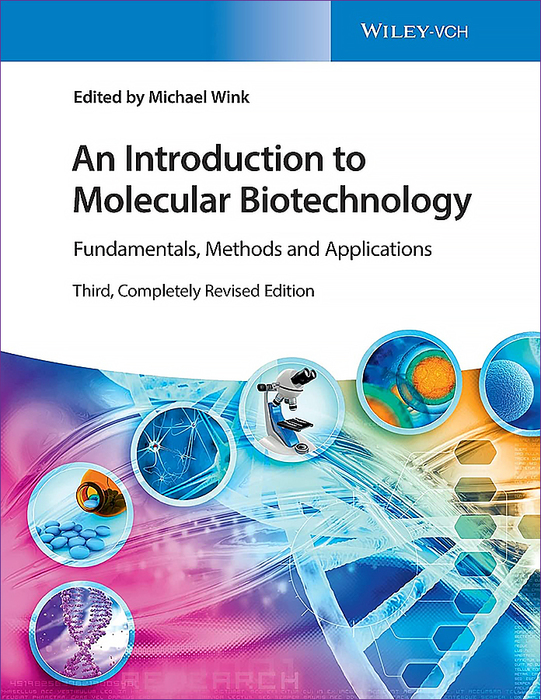An Introduction to Molecular Biotechnology: Fundamentals, Methods and Applications 3/e 2021
An Introduction to Molecular Biotechnology: Fundamentals, Methods and Applications 3/e 2021-需求單
內容簡介
Completely updated in line with the rapid progress made in the field, this new edition of the highly-praised textbook addresses powerful new methods and concepts in biotechnology, such as genome editing, reprogrammed stem cells, and personalized medicine.
An introduction to the fundamentals in molecular and cell biology is followed by a description of standard techniques, including purification and analysis of biomolecules, cloning techniques, gene expression systems, genome editing methods, labeling of proteins and in situ-techniques, standard and high resolution microscopy. The third part focuses on key areas in research and application, ranging from functional genomics, proteomics and bioinformatics to drug targeting, recombinant antibodies and systems biology. The final part looks at the biotechnology industry, explaining intellectual property issues, legal frameworks for pharmaceutical products and the interplay between start-up and larger companies. The contents are beautifully illustrated throughout, with hundreds of full color diagrams and photographs.
Provides students and professionals in life sciences, pharmacy and biochemistry with everything they need to know about molecular biotechnology.
作者簡介
Michael Wink studied biology and chemistry in Bonn and was awarded his doctorate from TU Braunschweig in 1980. After gaining his lecturing qualification in 1984/1985, he was awarded a Heisenberg grant by the German Research Council to work at the Max Planck Institute for Breeding Research in Cologne and from then at the Gene Center of Ludwig-Maximilians University in Munich. Following a chair for Pharmaceutical Biology at Mainz University in 1988, he accepted the post of Professor for Pharmaceutical Biology at the University of Heidelberg one year later. His areas of interest include pharmaceutical research, molecular biotechnology, and medicinal plants, as well as research into natural products and evolution.
目次
Part I Fundamentals of Cellular and Molecular Biology
1 The Cell as the Basic Unit of Life
2 Structure and Function of Cellular Macromolecules
3 Structure and Functions of a Cell
4 Biosynthesis and Function of Macromolecules (DNA, RNA, and Proteins)
5 Distributing Proteins in the Cell (Protein Sorting)
6 Evolution and Diversity of Organisms
Part II Standard Methods in Molecular Biotechnology
7 Isolation and Purification of Proteins
8 Mass Spectrometry and Applications in Proteomics and Microbial Identification
9 Isolation of DNA and RNA
10 Chromatography and Electrophoresis of Nucleic Acids
11 Hybridization of Nucleic Acids
12 Use of Enzymes in the Modification of Nucleic Acids
13 Polymerase Chain Reaction
14 DNA Sequencing
15 Cloning Procedures
16 Expression of Recombinant Proteins
17 Patch Clamp Method
18 Cell Cycle Analysis
19 Microscopic Techniques
20 Laser Applications
Part III Key Topics
21 Sequencing the Universe of Life
22 Cellular Systems Biology
23 Protein–Protein and Protein–DNA Interactions
24 Bioinformatics
25 Drug Research
26 Drug Targeting and Prodrugs
27 Molecular Diagnostics in Medicine
28 Recombinant Antibodies and Phage Display
29 Genetically Modified Mice and Their Impact in Medical Research
30 Plant Biotechnology
31 Biocatalysis in the Chemical Industry
Part IV Biotechnology in Industry
32 Industrial Application: Biotech Industry,Markets, and Opportunities
33 Patents in the Molecular Biotechnology Industry: Legal and Ethical Issues
34 Drug Approval in the European Union and United States
35 Emergence of a Biotechnology Industry
36 The 101 of Founding a Biotech Company
37 Marketing

